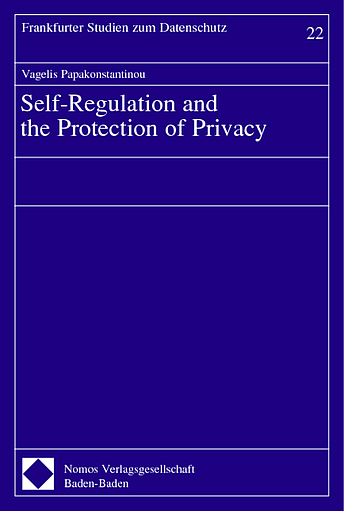Self-Regulation and the Protection of Privacy
ISBN 978-3-7890-8175-0
Self-regulation is frequently brought forward as the preferred alternative for the regulation of the Information Society. The emergence of new ways of communicating and doing business has initiated claims for their equally new regulative treatment, that will have to go beyond existing legislative boundaries, in order to help them develop. This is a view repeatedly advocated by the private sector, academics and, sometimes, national governments. On the other hand, disputes have been raised by those who challenge self-regulation’s ability to provide adequate safeguards for individuals in relation to the protection of their rights. This research attempts to assess the role of self-regulation for the protection of privacy. While doing this, an attempt is undertaken to define self-regulation through the notions of the "cooperative state” and "market regulation”. The background and the contemporary implementation of self-regulatory instruments in the field of data protection is examined, before an assessment of current schemes is carried out. The author supports that self-regulation has ultimately very little to offer to data protection, and should only be viewed as an assisting mechanism under the auspices of national data protection authorities. Only in parallel to data protection legislation can self-regulation truly serve the protection of individual privacy.


